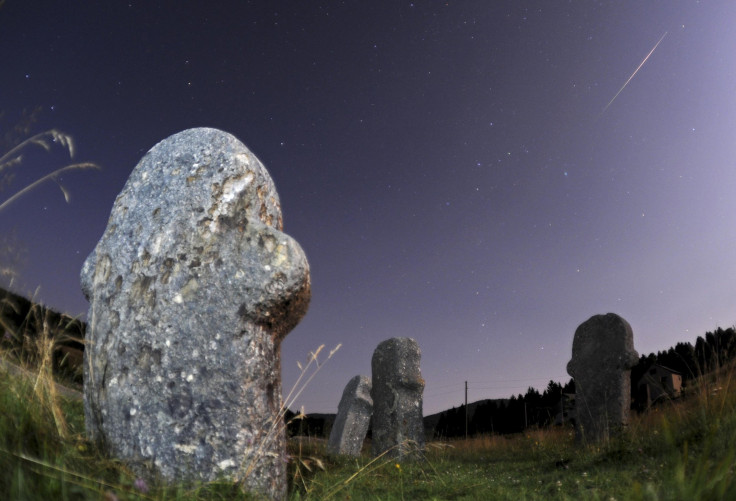Nicaragua Meteorite 2014: Managua Blast Likely Caused By Heavenly Body

A small meteorite blasted out a large crater when it crashed into the Nicaraguan capital of Managua, with the explosion Saturday at about 11 p.m. local time (Sunday at about 1 a.m. EDT) startling many in the country’s most populous city, according to multiple media accounts. Amazingly, none of the 2.4 million residents of the metropolitan area appear to have been injured during the event, Agence France-Presse reported.
However, the meteorite did leave a calling card at its impact site close to Managua’s international airport, a crater measuring 16 feet deep and 39 feet wide.
Wilfried Strauch, a researcher with the Nicaraguan Institute of Earth Studies, or Ineter, said in an interview on a government television channel that scientists have not yet determined the composition of the meteorite because they were unsure whether it disintegrated on hitting the ground or is buried at the impact site, Reuters reported.
Nicaragua not only has more than 20 volcanoes but also is regularly rocked by earthquakes, so its seismic sensors were able to detect the impact event this weekend.
“All the evidence that we’ve confirmed on-site corresponds exactly with a meteorite and not with any other type of event,” Reuters quoted Ineter’s Jose Millan as saying. “[W]e have the seismic register which coincides with the time of impact, and the typical characteristic that it produces a cone in the place of impact.”
Nicaraguan first lady Rosario Murillo said a committee formed by the government to study the event confirmed it was caused by a “relatively small” meteorite that “appears to have come off an asteroid that was passing close to Earth,” the Associated Press reported. She said Nicaragua will request that international scientists help local scientists in understanding what exactly happened.
Humberto Garcia, associated with the Astronomy Center at the National Autonomous University of Nicaragua, said the meteorite could indeed be related to an asteroid that was forecast to pass by Earth Saturday, AP reported. “It could have come off that asteroid, because it is normal for that to occur. We have to study it more because it could be ice or rock.”
Local residents reported hearing a loud boom Saturday night, but said they didn’t see anything strange in the sky, as Jorge Santamaria told AP: “I was sitting on my porch, and I saw nothing, then all of a sudden I heard a large blast. We thought it was a bomb because we felt an expansive wave.”
© Copyright IBTimes 2025. All rights reserved.






















